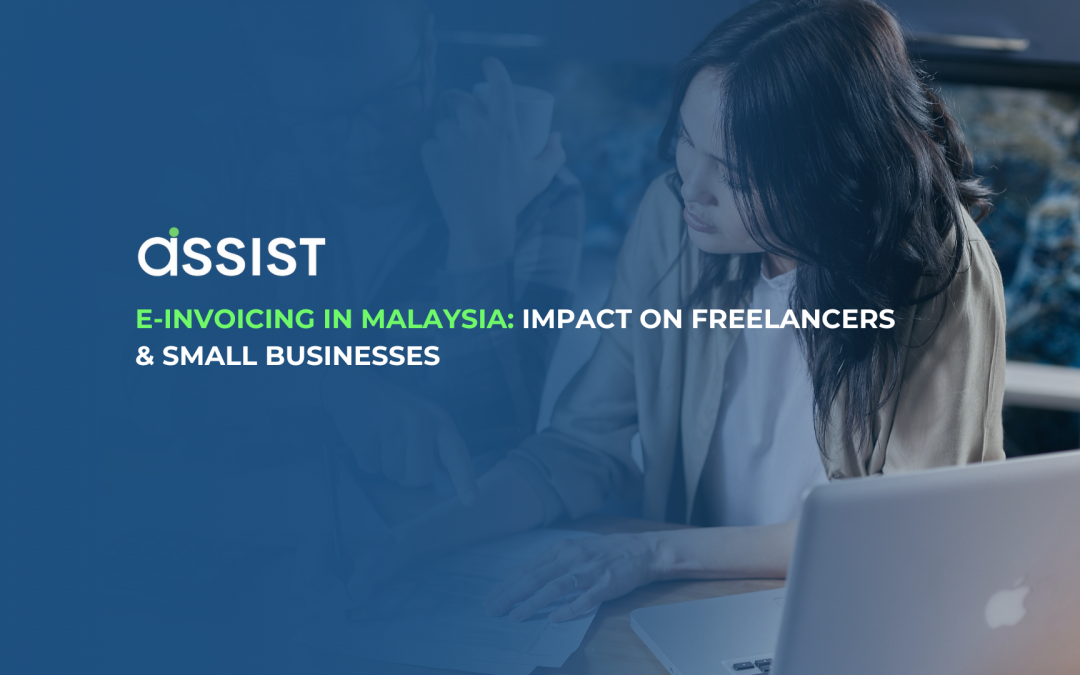E-invoicing is rapidly gaining traction in Malaysia as the government pushes for a digital transformation in tax administration. The Inland Revenue Board of Malaysia (LHDN) is leading this initiative to enhance tax compliance, reduce fraud, and streamline business transactions. With the adoption of electronic invoicing, freelancers and small businesses must prepare for significant changes. Understanding these shifts is crucial to staying compliant while leveraging the benefits of digital invoicing.
What Is E-Invoicing?
E-invoicing refers to the electronic generation, transmission, and storage of invoices. Unlike traditional paper invoices, digital invoices are created using standardized formats, ensuring accuracy and compliance with regulatory frameworks. In Malaysia, the government is gradually implementing e-invoicing as part of its digital tax initiative.
Why Is Malaysia Implementing E-Invoicing?
The Malaysian government aims to modernize its tax system by making invoicing more efficient and transparent. Key objectives of e-invoicing include:
1. Reducing Tax Fraud
By ensuring real-time verification of transactions, authorities can minimize fraudulent claims and tax evasion.
2. Enhancing Business Efficiency
Digital invoicing streamlines processes, reducing manual errors and administrative burdens.
3. Encouraging Digital Transformation
Small businesses and freelancers can benefit from a structured digital invoicing system, allowing them to remain competitive in a globalized market.
Who Will Be Affected?
The e-invoicing system will impact various businesses, including freelancers and small enterprises. Regardless of the industry, any business issuing invoices must adapt to the new system. While large corporations may find it easier to integrate, freelancers and small business owners may face initial challenges.
Freelancers
Freelancers in Malaysia, particularly those in digital services, content creation, and consulting, rely on invoices for payment. The introduction of e-invoicing means they will need to use government-approved platforms to generate invoices. Although it may seem complex initially, the structured system can lead to improved financial management.
Small Businesses
Small businesses will also need to comply with the new regulations. Retailers, service providers, and online entrepreneurs must ensure they issue valid electronic invoices. With proper implementation, small businesses can benefit from automation and reduced paperwork.
Benefits of E-Invoicing for Freelancers & Small Businesses
Despite initial concerns, e-invoicing offers several advantages:
1. Faster Payments
E-invoices are processed digitally, reducing delays in payments. Businesses can track invoices more efficiently, ensuring timely transactions.
2. Improved Accuracy
Manual invoicing is prone to errors. With automation, businesses can eliminate miscalculations and incorrect tax details.
3. Cost Savings
By switching to digital invoices, freelancers and small businesses can save on printing, postage, and storage costs.
4. Compliance With Tax Regulations
E-invoicing ensures adherence to Malaysia’s tax laws. Since the system integrates directly with government platforms, businesses can reduce tax-related issues.
5. Enhanced Record-Keeping
Businesses will have a structured digital record of transactions, making it easier to manage finances and prepare for audits.
Challenges of E-Invoicing Implementation
While e-invoicing brings numerous benefits, there are some challenges to consider:
1. Initial Setup Costs
Freelancers and small businesses may need to invest in software or subscription-based invoicing platforms.
2. Learning Curve
Adapting to digital invoicing systems requires time and effort. Business owners must familiarize themselves with new platforms and processes.
3. Internet Dependency
A stable internet connection is essential for issuing and managing e-invoices. Those in areas with limited connectivity may face difficulties.
4. Integration With Existing Systems
Businesses already using accounting software must ensure seamless integration with government-approved e-invoicing platforms.
How to Prepare for E-Invoicing
To ensure a smooth transition, freelancers and small businesses should take proactive steps:
1. Understand the Requirements
Familiarize yourself with Malaysia’s e-invoicing regulations. The government may provide guidelines, training, and resources to assist businesses.
2. Choose the Right E-Invoicing Software
Select a government-approved e-invoicing platform that meets your business needs. Many software solutions offer automation, tax compliance, and easy integration with existing accounting tools.
3. Train Yourself and Your Team
Learning how to use e-invoicing platforms effectively will minimize disruptions. Freelancers should explore tutorials, while small businesses can provide training for employees.
4. Automate Where Possible
Using automated invoicing systems reduces manual effort. Automation ensures invoices are generated correctly, saving time and improving accuracy.
5. Maintain Digital Records
Ensure all invoices and financial documents are stored securely. Cloud-based invoicing solutions offer reliable storage and easy access.
Conclusion
E-invoicing in Malaysia represents a significant shift in how businesses manage transactions. While freelancers and small businesses may face initial challenges, adopting digital invoicing can lead to increased efficiency, cost savings, and compliance with tax regulations. By preparing early and leveraging the right tools, businesses can transition smoothly into this new era of financial management.
🚀 Say Goodbye to Invoice Hassles with Assist E-Invoice Software!
Tired of chasing payments, fixing errors, and dealing with tax complexities? Assist E-Invoice Software makes invoicing faster, smarter, and 100% compliant—so you can focus on growing your business!
✨ Why Choose Assist?
✅ Automated & Error-Free – No more manual mistakes or delays.
✅ Tax-Ready & Compliant – Stay ahead of ever-changing regulations.
✅ Fast & Secure Payments – Get paid on time, every time.
✅ Affordable & Cost-Effective – Get premium features without breaking the bank.
💡 Make invoicing effortless—switch to Assist today! 🚀
Frequently Asked Questions (FAQs)
What is e-invoicing, and why is it being implemented in Malaysia?
E-invoicing is the digital creation, transmission, and storage of invoices using a standardized format. The Malaysian government is implementing it to improve tax compliance, reduce fraud, and enhance business efficiency.
Who needs to comply with Malaysia’s e-invoicing regulations?
All businesses, including freelancers and small enterprises, must comply. Whether issuing local or international invoices, businesses must use government-approved e-invoicing platforms.
What are the benefits of e-invoicing for small businesses and freelancers?
E-invoicing reduces paperwork, ensures faster payments, enhances accuracy, and automates financial records. It also helps businesses stay tax-compliant with real-time verification.
What challenges might freelancers and small businesses face?
Some challenges include initial setup costs, a learning curve, internet dependency, and the need for software integration with existing accounting tools.
How can businesses prepare for e-invoicing in Malaysia?
To prepare, businesses should understand the requirements, choose approved invoicing software, train themselves or employees, automate processes, and maintain digital records.
When will e-invoicing become mandatory in Malaysia?
The Malaysian government is rolling out e-invoicing in phases. Businesses should stay updated with official guidelines to ensure a smooth transition.


Recent Comments